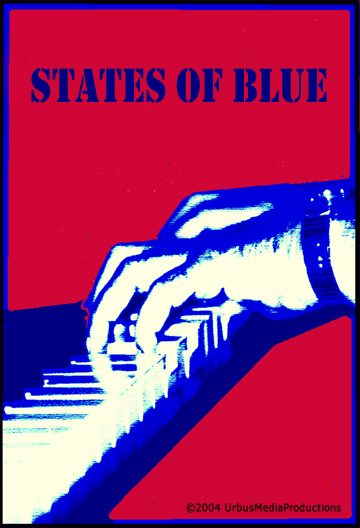 The morning after the election I did what I often do when something gets me down: I sat down at the piano and start noodle-ing some blues dirges, the kind that were (still are) played at funerals in New Orleans. I love the blues, nothing in our musical idiom is more “American.” The blues allow musical improvisation and individual expression like no other music; fast or slow, lugubrious or felicitous, plan or subtle, its forms facile and exotic, the blues can make us laugh or cry, or dance, and make us more of who we are.
The morning after the election I did what I often do when something gets me down: I sat down at the piano and start noodle-ing some blues dirges, the kind that were (still are) played at funerals in New Orleans. I love the blues, nothing in our musical idiom is more “American.” The blues allow musical improvisation and individual expression like no other music; fast or slow, lugubrious or felicitous, plan or subtle, its forms facile and exotic, the blues can make us laugh or cry, or dance, and make us more of who we are.
I was playing with a lyrical line in my head, something about being from a “blue state,” you know, those indigo borders around a bloody expanse of Republican red in the middle. I was urging myself toward some theme that expressed my pride, no, not pride, satisfaction, at being from a blue state; two actually, since I was born and raised in New York. (Sure, both those states have dorks for governors [in 2004], but I wasn’t thinking of that.) I’m a blue stater all the way, I thought, as my thick, dark dirgey chords began to give way to a lighter tone, and the meter gained a couple of extra beats.
I like being from a state that has a view outward, toward other shores and other peoples, that is enriched in its colors and languages, and faiths, by those who have washed up on those shores. New York might be the geographical, and if Woody Allen is to be believed, the cultural reciprocal of California, but not when it comes to being “blue.” I tried to find a way to layer in a New York melody line, like “New York, New York; It’s a Wonderful Town,” into a blues phrase, then maybe segue into a bridge phrase from “California, open your Golden Gate.”
How could New Orleans go “red state” when the blues were born there? They’ve gone from the Birth of the Blues to Birth of a Nation. But that’s an aside about those red states with their small pinch-minded people, afraid of so much—afraid of terrorism, afraid of modernism, afraid or liberalism, afraid of lesbianism, afraid of intellectualism, afraid of globalism, afraid of –isms. So afraid that they would rather pray than think. Oh, the terrorists really did a job on these folks, and George plays ’em like a penny whistle. So now I really feel better about being a blueser, about not being one of those red-staters; they don’t know the blues, they never apprehended the meaning of the gospel blues, the joy, the brotherly love.
Now the chords are jumping, pushed by a baseline that wants to drive the dirgey blues away and open up new melody lines, get discordant, dig for odd notes in chords, surprise, take chances, but more than anything, look for something new, not be afraid of the new, tonal pleasures that might border on the erotic, that are suggestive, exploratory. The idea is to try to give the blues every chance that pinch-minded people fear and abhor because it doesn’t have their imprimatur. Any blues player knows just what I mean; a conservative blues player is an oxymoron, a red-stater wherever he lives.
The blues actually made me feel better, the way they should. The blues come from a people who were enslaved and marginalized (the same ones whose votes were challenged and lost in two elections now), so the blues are inherently rebellious, they way they now make me feel. Blue is what I am and what I want to be. Blue is edgy, blue is coastal, blue is liberal, blue is urban, blue is improvisational, blue is cool. Republicans are none of these things, and cool is something they definitely are not.
___________________________________
©2004, James A. Clapp (UrbisMedia Ltd. Pub. 11.6.2004)
